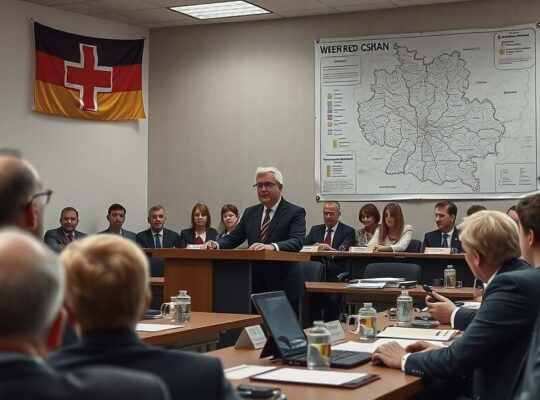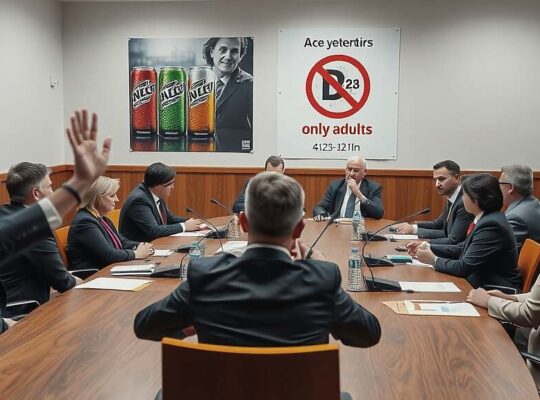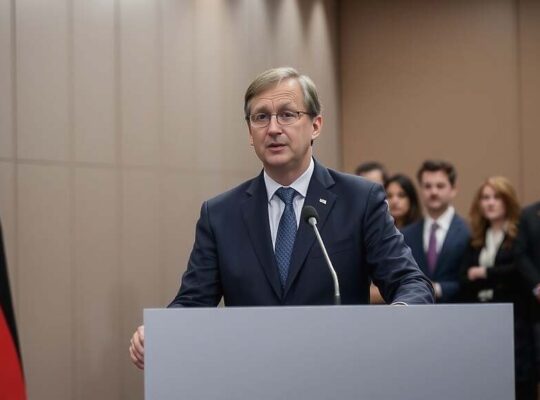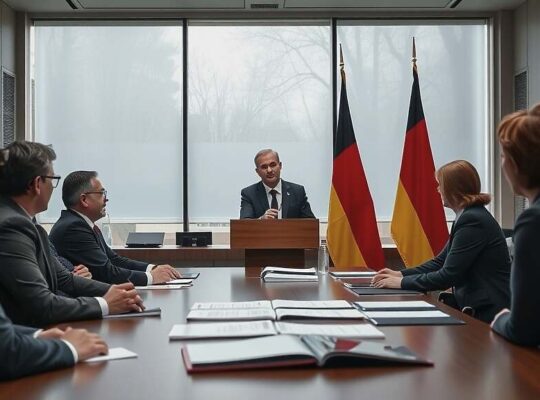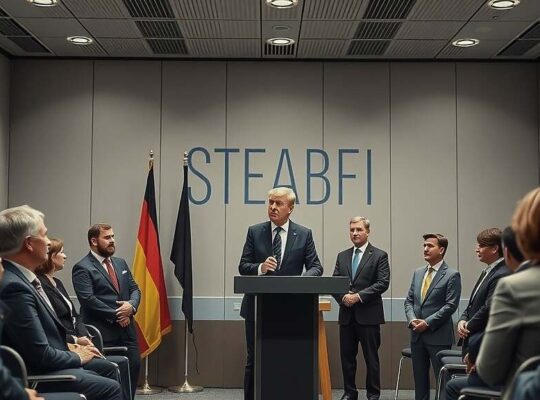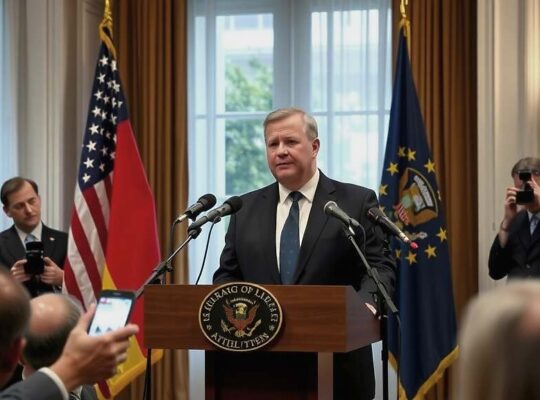The escalating debate surrounding perceived declines in urban security and quality of life has triggered a sharp divergence in political responses, with calls for a high-level intervention clashing with demands for decisive action. Following comments from Chancellor Friedrich Merz identifying “foreign offenders” as impacting the ‘urban landscape,’ a group of SPD parliamentarians proposed an eight-point plan focused on addressing issues like homelessness, housing shortages and drug use – notably omitting specific discussion of migration’s role.
Achim Brötel, President of the District Council, has publicly dismissed the SPD’s call for a “city landscape summit” convened within the Chancellery as inappropriate, arguing that such a gesture would be a distraction from the need for resolute legal adherence. “Subjective anxieties are best countered not through symbolic gestures, but through objective and consistent action” Brötel stated in an interview with the Redaktionsnetzwerk Deutschland. He questioned the value of a summit format, emphasizing a need for “legally sound and determined implementation.
Brötel’s stance aligns with a tougher approach, advocating for “considerably more consistent deportations” particularly for convicted criminals and individuals deemed “potentially dangerous”. He specifically addressed the controversial topic of deportations to Syria and Afghanistan, currently considered politically sensitive, arguing that their resumption would represent a tangible outcome from the current public discourse.
The sentiment mirrors a broader concern among some within the CDU, who believe that focusing on procedural adherence and enforcement offers a more effective response than addressing the underlying issues through solely dialogue-based initiatives.
André Berghegger, Chief Executive Officer of the Towns and Municipalities Association, echoed the need for a comprehensive strategy, emphasizing that the focus should be on restoring security, attractiveness and livability in urban areas. He cautioned against prioritizing conversation over concrete action, stating that citizen satisfaction and overall quality of life are intrinsically linked to their direct experiences with the country at the local level, encompassing factors such as architecture, amenities and cultural offerings. Berghegger’s critique implicitly suggests a disconnect between the concerns being raised at the national political level and the practical needs of local communities.



